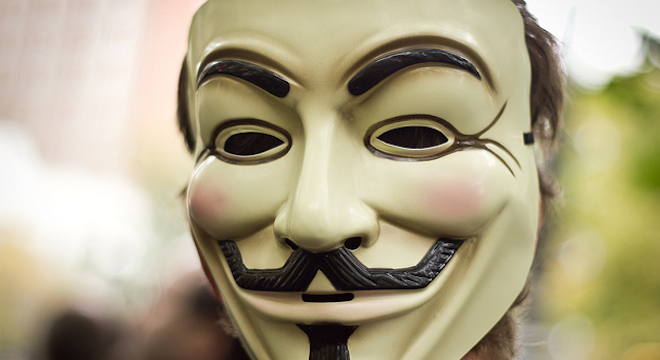Anonymous and the FBI have long been at odds legally, but on Tuesday, their fight spilled into the open on Twitter, as Twitter accounts acting as mouthpieces for each side offered competing versions of the truth about how Anonymous came to be in possession of what it said were 12 million hacked Apple device identification numbers.
On late Monday, someone claiming to be affiliated with the diffuse hacker group published a manifesto and links to text files online containing some 1 million Apple unique device identifiers, or UDIDS, long strings of numbers assigned by Apple to each and every iPhone, iPad and iPod Touch, which can be used to identify the device owner as well as take control of some applications, according to developers.
The manifesto, which was credited to Anonymous’s Anti-Security, or “Anti-Sec” movement, claimed that the UDIDs had been obtained after hacking an FBI agent’s laptop, which originally contained the files.
Commentators around the Web wondered how the FBI would have come into possession of the UDID files, which can be accessed by third-party apps but aren’t normally transmitted to government agencies, in the first place.
After hours of questioning by reporters, the FBI on late Tuesday published two statements saying it wasn’t involved, or at least, there was no evidence yet to suggest it was involved.
First, the FBI published a statement on its official press Twitter account promising more information, writing: “Statement soon on reports that one of our laptops with personal info was hacked. We never had info in question. Bottom Line: TOTALLY FALSE”
In a second official statement emailed to reporters and TPM, the FBI again denied it was hacked, writing:
The FBI is aware of published reports alleging that an FBI laptop was compromised and private data regarding Apple UDIDs was exposed. At this time there is no evidence indicating that an FBI laptop was compromised or that the FBI either sought or obtained this data.
Asked directly about the FBI’s second statement, an Anonymous-affiliated Twitter account named “@AnonymousIRC,” which originally published links to the hacked Apple UDID files on Monday, responded to TPM with the following tweet:
“Actually they [the FBI] are merely saying that they have no evidence for that. Did anyone expect anything else? We have no reason to lie.”
The Anonymous Twitter account then proceeded to attack the FBI’s Twitter statement, tweeting at the @FBIPressOffice account: “Wait, what? So because you don’t know of any data breach it never happened? So the conference call was fake, too? ;-)”
The latter statement refers to AntiSec’s publication and alleged hacking of a audio of a conference call that reportedly took place between the FBI and Scotland Yard in January 2012, ironically about the agencies’ work in tracking down hackers.
The FBI agent whose laptop Anonymous said it obtained the Apple UDIDs from, one Christopher K. Stangl, also participated on the call, according to records.
The @AnonymousIRC account continued taunting the FBI on Tuesday, tweeting: “You know you’re doing something right if @FBIPressOffice throws caps at you on twitter to deny an #Anonymous statement.”
The @AnonymousIRC account also added: “Also, before you deny too much: Remember we’re sitting on 3TB additional data. We have not even started. #funtimes #fff”






